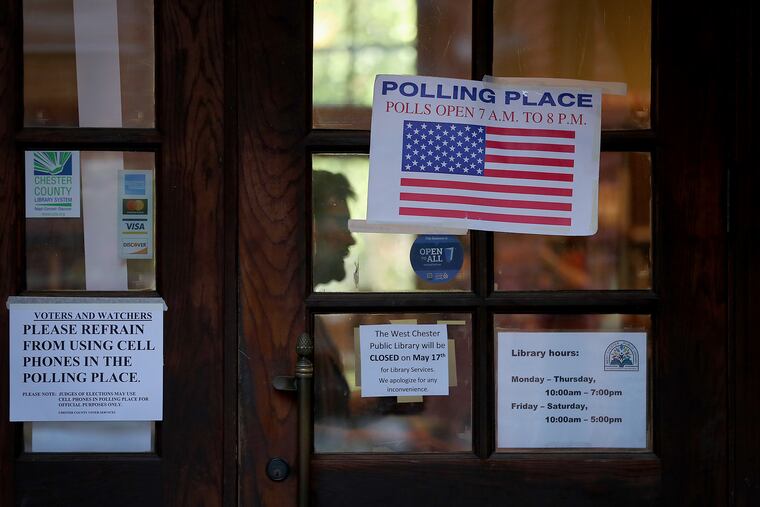
ID problems
I just read Jennifer Stefano’s column, “Why are Democrats doing everything in their power to stop voter ID laws?” Perhaps an opposing opinion column should be titled, “Why are Republicans doing everything in their power to implement voter suppression laws?” We wanted to get my elderly mother a Real ID-compliant identification because her driver’s license and passport had expired. Here is what we were told was required: original birth certificate or expired passport, proof of Social Security status and Social Security number, two proofs of current physical Pennsylvania address, and proof of legal name change like a marriage certificate. Sounds easy? Try to get an original birth certificate from 1930 and a marriage certificate from 1949 for someone born in another state (in this case Massachusetts) or in a rural community. In the end, we could not get all the documentation to satisfy the requirements, so we dropped it. Now think about what requirements our Pennsylvania legislators will want for a voter ID. How many people will be excluded because of the lack of “proper” documentation? It looks more like Pennsylvania Republicans want to suppress voter participation. Yet they try to sell it with buzzwords such as “voter integrity” or “restoring confidence in our institutions.” Ironically, after the Republicans have spent the last two-plus years ripping confidence apart with recurring disinformation and misinformation around elections, now they want “integrity.” Why do they focus on a voting system that isn’t broken and has been tested in the courts over and over again? There are so many real issues that state and federal legislators should be working on, instead of inventing and relitigating long-debunked issues and theories.
Susan Thompson, Media
ID solutions
I have been a judge of elections in Philadelphia’s 8th Ward for more than 10 years. It is rare that I agree with columnist Jennifer Stefano, but her piece advocating for the use of voter ID is one such time, though for a reason that neither she nor opposing columnist Solomon Jones even acknowledges. My team of poll workers uses a registration book that purports to ensure that each person who comes to vote is legally entitled to do so. However, with the exception of first-time voters who are required to present identification, the only tools at our disposal to carry out this responsibility are the name that the potential voter gives us and “matching” their present signature with the one that appears in the book. With respect to the former, while there are several voters who at least one member of my team knows (because we all live in the ward), most of the voters are unknown to us. Whatever name they give us is the name that we will look up in the book. If that name is in the book, the person will be asked to sign. We will then make a cursory examination comparing the present signature with the one in the book. However, none of us is a handwriting expert, and the signatures of many voters have changed substantially over the course of time. If we were to require not even a perfect match, but merely close similarity, between the two signatures, there would be several voters in each election who we would prohibit from using the voting machine. (They could still vote using a provisional ballot, but many people will not take the time to do so, and you can imagine the fuss that would be made by those we “doubted.”) During my time as a judge, I have no reason to believe that anyone who came to our polling place was someone other than who they said they were. But, truth be told, neither I nor any member of my team knows for sure. Even if we did not live in a world in which the integrity of our election system was being challenged (albeit with no evidence), requiring easily obtainable identification that would be presented at the time of voting would be a small price to pay to reduce, if not eliminate, this possibility for voter fraud.
Jeffrey Braff, Philadelphia
Join the conversation: Send letters to letters@inquirer.com. Limit length to 150 words and include home address and day and evening phone number. Letters run in The Inquirer six days a week on the editorial pages and online.